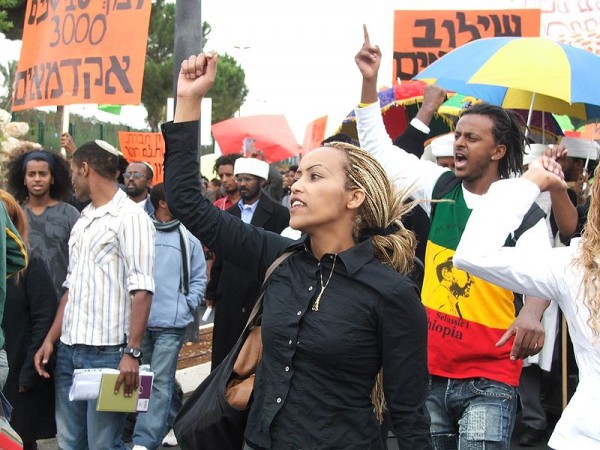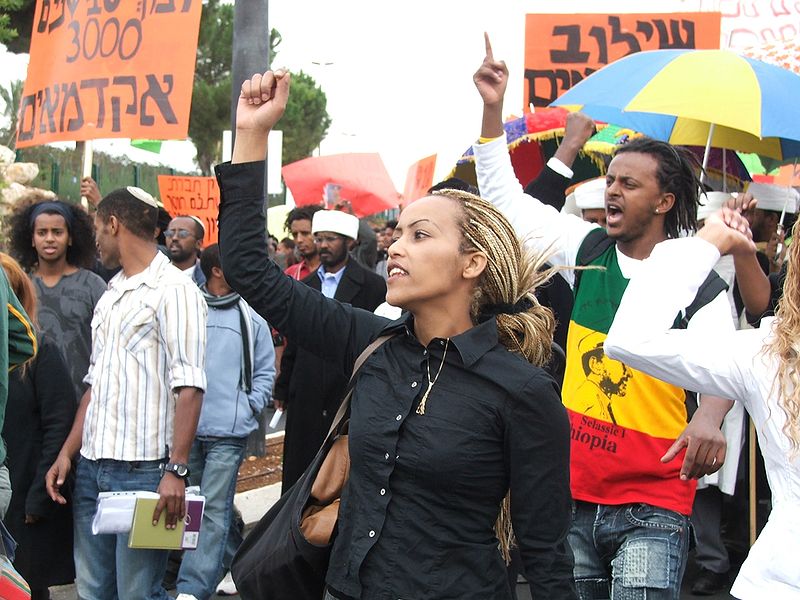
I post a lot of things about the Holy Land on Facebook. I mean, I post about a lot of things – South Africa, migration politics, tasty coconut-based desserts – but also a lot about Israel and Palestine. And many of the things I post are not terribly adulatory of Israel. In fact, they’re starkly critical. I disagree with a lot of Israel’s behavior (I’m even on public record here, and here, and here), and I don’t think that I should keep my opinions to myself in this regard – even if it’s just a Facebook wall post.
Often, I’m lucky and some fascinating conversations come out in the comment threads of these posts. I like to think that this speaks to the intelligence of my friends.
Sometimes, however, I get blasted by critics. I’m being too negative about Israel. I’m not giving her the “respect” she/it “deserves.” I’m being “hateful” and “mean,” posting “biased” articles from “unreliable” news-sources. (Meanwhile, many use this oh-so-reliable, I mean, not news source that tried to put forth a *conspiracy theory*.) Or my criticisms are just “hate” and I don’t understand, apparently, how “good” Israel has been.
And I’m asked why I’m posting these things that are so negative. Why I am “singling out” Israel. Why I am “distasteful.” Why I don’t respect “our land.” Why I’m a “bad Jew” for doing this. These things…you ask me.
Here is a lengthy answer.
Firstly, you cry, I’m “singling out” Israel. Why don’t I talk about the human rights violations in Eritrea, the abuse of refugees in Italy, or the jailing of dissidents in Cambodia? Israel, you claim, is doing “somewhat better.” Or it is a small state that has “special challenges” and “limited resources.” These are rather flimsy excuses. Firstly, I think if we’re going to call Israel a Jewish state, we should remember that neither tradition nor Jewish law consider “limited resources” or “what other people do” as exemptions from the pursuit of justice, righteous conduct, or challenging oneself. Secondly, what a low standard! “We’re not them” is a smokescreen from actually discussing anything of importance. These things are being done in your name, in my name, in the name of Jewry. That is not license for blind defense. Nor is it a proper place to apply your defensive reflex, especially when it gives anti-Semites even more fodder. (Yep. I said that, and I’m not the first.)
Then you cry over distastefulness. Apparently I’m not respecting the kavod habriyot (human dignity) of those who defend Israel – never mind, of course, that you can’t use that to erase the dignity of others. Sure, I’ll remember Ariel Sharon, but that does not mean that I’m going to honor him by wiping out the dignity of those who died in Sabra and Shatila – however “direct” or “indirect” Sharon’s still-extant responsibility was. Then you tell me that I’m being “unusually mean.” Or I am “shaming” Israel, and by extent, the Jewish people. I was told in September that I was being distasteful given the “hundreds of thousands of dollars” being poured into hasbara-centric programming. Well, if criticism is distasteful, I am quite curious to know what one makes of the very public criticisms made in Israel – of racism (as pictured above), of disrespect for human life, of those who cry “distasteful!” at every critique. More specifically, tears over distaste are really just a silencing mechanism. As Noam Chomsky noted, continued appeals to wait “until he’s buried,” “until this has washed over” is really just a way to prevent the airing of critiques.
But, you say, Israel is our state! Our Jewish state! Well then: Israel may not even really be that strong as a Jewish state, nor is it a state for all Jews by the admission of David Ben-Gurion himself. Just because it is a Jewish state does not mean that I should forget the racism (yes, racism) that many Mizrahi olim faced in the 1950’s and now (and Ethiopians in the 1980’s and now), or that Diaspora Jewry’s voice is often wiped out by the dominance of Israel-at-the center. For many, in fact, Israel has not been the Jewish home they sought – thousands of Jews who migrated to Israel, including my parents, have left: a Jewish state does not negate potential happiness in the Diaspora. And of course, let’s not forget that Israel is the only “Western,” “democratic” country with restrictions on which Jews can marry Jews and how a Jewish wedding can occur. I might be willing to support the Jewish state slightly more earnestly if it, you know, began to recognize my rabbi’s rulings. Given that the rabbinate and the state are hand in glove, it is not something that we should discount here.( For more on this, I direct you to New Voices’ very own Amram Altzman.)
You try to tell me I’m a bad Jew. That my failure to support Israel is a signal of not engaging in ahavat Yisrael, that I have “forgotten” our heritage, that I am “aiding the enemy.” But is it not more Jewish to criticize and call out bad things our own do? What did the prophets do? (Mind you, I am just a college student with a caffeine addiction.) We Jews loudly and proudly proclaim our tradition of not simply accepting the status quo. If you can’t accept a bit of criticism on a mere Facebook post, then I can only imagine of what you make of groups such as Rabbis for Human Rights, who make this sort of work the base of their daily existence.
I am Jewish and proud. I’m sorry for “singling out” Israel, or not concentrating on the good things, or whatever. Not concentrating on the “dignity” of a mass murderer because I’d rather not forget the dignity of all those he killed. Not concentrating on the Jewish essence of a Jewish state that has repeatedly denigrated, denied, and delegitimized my closest denomination of Judaism. Not falling into the idolatrous – yes, idolatrous – trap of assuming constant honor and promotion of Israel is love for the Jewish people. Because it’s not. No number of boilerplate hasbara stock-phrases will undo the stark reminder from tractate Yoma in the Talmud: the Temple was destroyed for the sinat chinam (baseless hatred) that had emerged, for the needless bloodshed, and for the refusal of Am Yisrael (the Jewish people) to atone for their sins. If you’re interested, Yoma 9a.
So, no, I will not stop posting. Life is not a Shirley Temple movie, and if you can’t face scary opinions that break your orthodoxies – something we all have to do (and I may write about doing this in the future), then maybe you should find something else to talk about. If horrid things are being done in my name or the name of our faith and people, then goshdarnit, I’m going to talk about it.
“If not now, when?” – Pirkei Avot 1:14
Jonathan Katz is a student at the University of Chicago.

